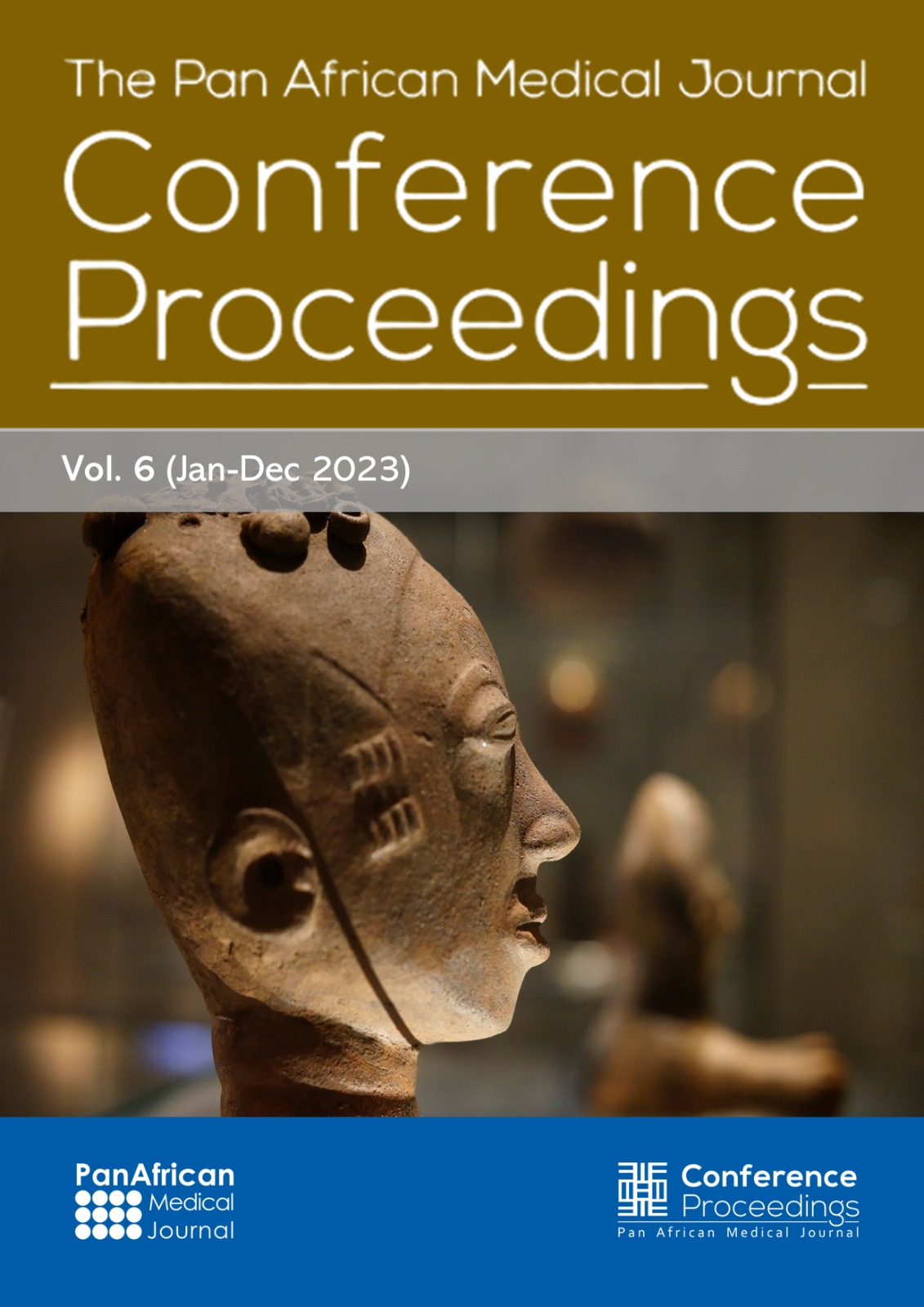Conference abstract
Oral health knowledge, attitude and practice of teachers in Ikorodu, Lagos State
Pan African Medical Journal - Conference Proceedings. 2022:13(8).02
Feb 2022.
doi: 10.11604/pamj-cp.2022.13.8.868
Archived on: 02 Feb 2022
Contact the corresponding author
Keywords: Oral health attitude, oral health knowledge, oral health knowledge, school teachers
Oral presentation
Oral health knowledge, attitude and practice of teachers in Ikorodu, Lagos State
Augustine Edomwonyi1,&, Afolabi Oyapero1
1Department of Preventive Dentistry, Lagos State University Teaching Hospital, Ikeja, Lagos State, Nigeria
&Corresponding author
Introduction: teachers play key roles in the educational system and if well trained, educated and motivated on oral health, they may be able to impart this knowledge to their pupils. This study aims to determine the oral health knowledge, attitude and practice among secondary school teachers in public schools in Ikorodu Local Government area of Lagos State.
Methods: this was a cross sectional study conducted among 50 teachers in four secondary schools in Ikorodu, Lagos State using a closed ended questionnaire. Information obtained included socio-demographic data, oral health knowledge, attitude and practices of the respondents. Data entry and analysis was done using the SPSS version 20. Confidence interval for statistical tests was set at 95% at p Ë‚ 0.05.
Results: response rate was 100%. Majority of the teachers in the four schools obtained oral health knowledge scores of between 50% and 74.9% and were classified as having “fair” knowledge. About 64% of the teachers that took part in this study had a positive attitude towards oral health, while 36% had a negative attitude. Oral health practice of 32% of the teachers was poor, 58% had fair oral health practice while only 10% of the teachers had good oral health practice.
Conclusion: overall oral health knowledge and practice was fair among the school teachers and majority had positive attitude towards oral health. With further education, they should be able to serve as agents of oral health education in schools.
Oral health knowledge, attitude and practice of teachers in Ikorodu, Lagos State
Augustine Edomwonyi1,&, Afolabi Oyapero1
1Department of Preventive Dentistry, Lagos State University Teaching Hospital, Ikeja, Lagos State, Nigeria
&Corresponding author
Introduction: teachers play key roles in the educational system and if well trained, educated and motivated on oral health, they may be able to impart this knowledge to their pupils. This study aims to determine the oral health knowledge, attitude and practice among secondary school teachers in public schools in Ikorodu Local Government area of Lagos State.
Methods: this was a cross sectional study conducted among 50 teachers in four secondary schools in Ikorodu, Lagos State using a closed ended questionnaire. Information obtained included socio-demographic data, oral health knowledge, attitude and practices of the respondents. Data entry and analysis was done using the SPSS version 20. Confidence interval for statistical tests was set at 95% at p Ë‚ 0.05.
Results: response rate was 100%. Majority of the teachers in the four schools obtained oral health knowledge scores of between 50% and 74.9% and were classified as having “fair” knowledge. About 64% of the teachers that took part in this study had a positive attitude towards oral health, while 36% had a negative attitude. Oral health practice of 32% of the teachers was poor, 58% had fair oral health practice while only 10% of the teachers had good oral health practice.
Conclusion: overall oral health knowledge and practice was fair among the school teachers and majority had positive attitude towards oral health. With further education, they should be able to serve as agents of oral health education in schools.








